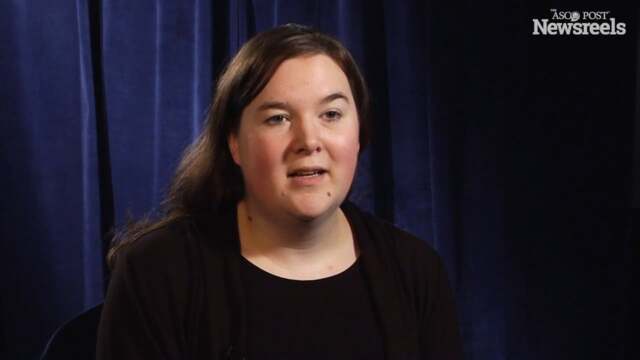Roy Decker, MD, PhD, on Chemoradiation in Elderly Patients With Limited-Stage SCLC
2015 ASTRO Annual Meeting
Roy Decker, MD, PhD, of Yale University School of Medicine, discusses a National Cancer Database analysis that showed elderly patients with limited-stage small cell lung cancer can benefit from adding concurrent radiation to chemotherapy (Abstract 1010).
Reshma Jagsi, MD, DPhil
Reshma Jagsi, MD, DPhil, of the University of Michigan Health System, discusses this multicenter phase 1 study of veliparib given concurrently with chest wall and nodal radiation therapy in patients with inflammatory or locoregionally recurrent breast cancer (Abstract 312).
Bruce Minsky, MD
ASTRO President Bruce Minsky, MD, of MD Anderson Cancer Center, talks about the goals and highlights of this year’s ASTRO Annual Meeting.
Howard M. Sandler, MD
Howard M. Sandler, MD, of Cedars-Sinai Medical Center, discusses how adding 24 months of daily antiandrogen therapy during and after radiotherapy was shown to significantly improve long-term overall survival following prostate cancer recurrence after a radical prostatectomy (Abstract LBA5).
Bridgett Harr, CNP
Bridgett Harr, CNP, of Cleveland Clinic, discusses the advanced practice nurse follow-up clinic, which focuses on symptom management in the first 90 days postchemoradiation (Abstract 3169).
Leonard Gunderson, MD
Leonard Gunderson, MD, of the Mayo Clinic College of Medicine, discusses PET/CT imaging in upper and lower gastrointestinal cancers, which can be of value as a baseline study prior to treatment, in determining the degree of response to treatment, and in helping decide whether there is a relapse after a complete response to treatment.





